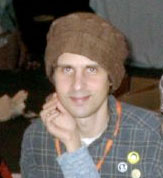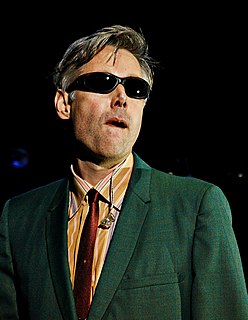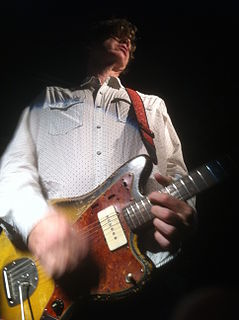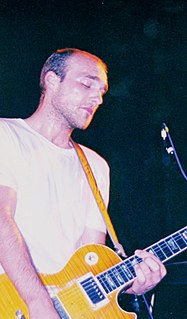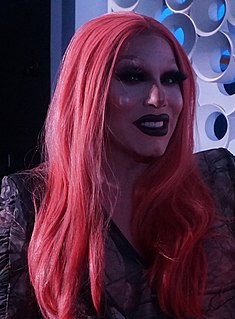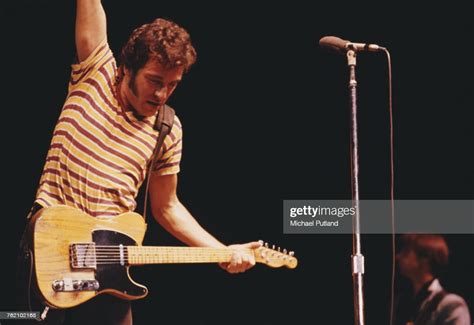A Quote by Kathleen Hanna
I've always thought that "punk" wasn't really a genre. My band started in Olympia where K Records was and K Records put out music that didn't sound super loud and aggressive. And yet they were punk because they were creating culture in their own community instead of taking their cue from MTV about what was real music and what was cool. It wasn't about a certain fashion. It was about your ideology, it was about creating a community and doing it on your own and not having to rely on, kinda, "The Man" to brand you and say that you were okay.
Related Quotes
The whole point was just to be yourself, no matter what that was. You didn't have to fit into a certain punk-rock cliché. Create whatever your compelled to create. People were putting out their own records, and it just seemed natural to put out my own magazine. When I was really young, I started making magazines and little books, just folded-over pieces of typing paper, so when I discovered punk rock, it really blew my mind. I played in bands and stuff, but making my own zines seemed like an inherent part of that scene.
Caitlin Cary and I were always talking about X when we talked about whiskeytown, before it became an actual band. We like the concept of there being no real front person in X, yet this kind of switch up of vocals and really their sheer power, and their ability to sort of bastardise punk rock and midwetsren rock and even country into their own sound.
If educators were really understanding of that, they'd say, "You know what? Forget about bilingual, we're going to do multilingual education." So children are ready for the new millennium. We're way behind compared to countries in Europe. If we were multilingual, imagine how much you would learn about your own culture, about the sensibilities of what's important in your own culture.
To begin with, the key principle of American indie rock wasn't a circumscribed musical style; it was the punk ethos of DIY, or do-it-yourself. The equation was simple: If punk was rebellious and DIY was rebellious, then doing it yourself was punk. 'Punk was about more than just starting a band,' former Minutemen bassist Mike Watt once said, 'it was about starting a label, it was about touring, it was about taking control. It was like songwriting; you just do it. You want a record, you pay the pressing plant. That's what it was all about.'
I felt that we started to go through the motions. Our hearts weren't there. Because we were always working on the band, and it became more about selling records than about writing and being passionate. That's why I ultimately lost interest. I don't want to speak for everybody, but I personally started to lose interest because we were doing it for the wrong reasons. It became monotony and it just wasn't fun anymore. Yeah, an obligation.
For my parents' generation, the idea was not that marriage was about some kind of idealized, romantic love; it was a partnership. It's about creating family; it's about creating offspring. Indian culture is essentially much more of a 'we' culture. It's a communal culture where you do what's best for the community - you procreate.
My vision of punk rock was these dudes who were spitting on the audience and moshing. That's why I kind of left that scene. Then I see all these people around my same age or between 17 and 25 that were making music themselves in their own town. They weren't just singing, but creating. I see them putting out this music where there are tons of women involved in the scene and involved in the bands.
Any young, aspiring musicians out there, if music is what you want to do, if music is what you love and your passion. It doesn't take a fragrance, it's not about the tabloids, it's about you putting in the work, practicing every day, practicing your vocals, practicing your instrument, practicing songwriting. Hopefully one day you write the song the whole world wants to get down to. I promise you, if you go out there and sing and you put your heart and soul into it and you follow your dream, one day you're going to be sitting next to Ellen DeGeneres talking about how you broke records and rocked the Super Bowl.

